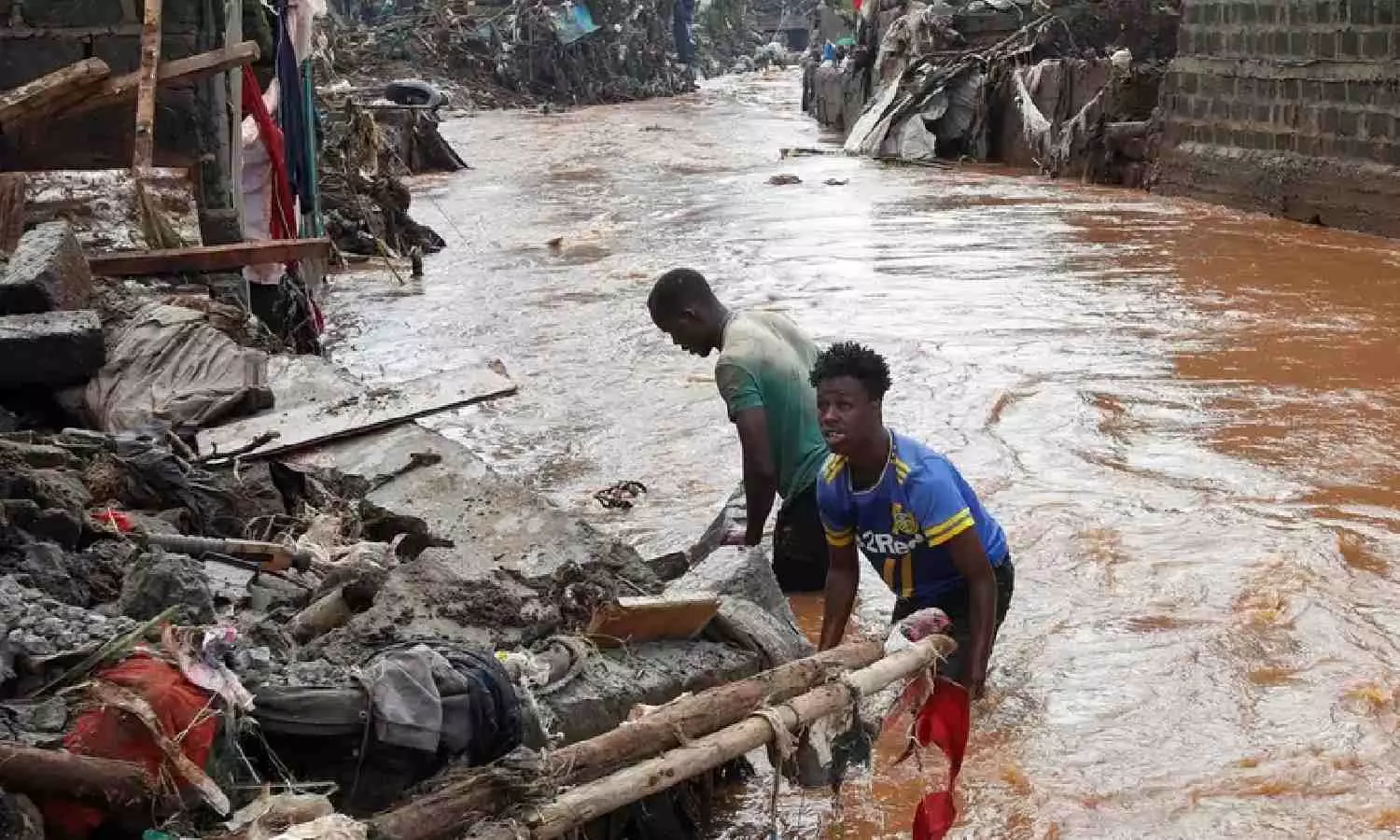Disaster mitigation takes on new urgency
The rains just won't stop. Whole villages across Kenya have just disappeared;

Visuals from the spot
• After the worst drought in decades, East Africa is now being pounded by heavy rains. At least 180 people have died in floods and landslides in Kenya since the rainy season began in mid-March, with hundreds of thousands forced to leave their homes. The flooding in Kenya is absolutely out of control, reporter Andrew Wasike told DW's Africalink program.
The rains just won't stop. Whole villages across Kenya have just disappeared. And the worst part? Roads are gone, bridges are completely washed out, people are cut off. It's heartbreaking, and the forecast says this rain isn't going to let up anytime soon.
Tanzania and Somalia have also been hard hit by torrential rain and severe floods, displacing tens of thousands and inundating crop lands. In contrast to that, southern Africa is suffering from prolonged dry spell at the same time, which has scorched crops during what is supposed to be the growing season, threatening food security. These are only a few of the natural disasters currently clobbering the continent.
Why is Africa so vulnerable to natural disasters? The reasons for Africa's propensity to suffering natural hazards are complex but include the reduced capacity of governments and institutions to protect communities from and respond to disasters.
The vast majority of Africans are also dependent on rain-fed agriculture for their food, making them especially vulnerable to suffering the negative effects of flooding and drought. Recurring disasters, which can wipe out crops and cause massive displacement, often leave poor nations picking up the pieces of one event when they are being slammed by another.
For instance, in 2023 Malawi was lashed by Cyclone Freddy, which dumped six months of rainfall in six days and triggered mudslides and floods across the nation, killing more than 1,000 people. But Freddy came hard on the heels of two prior cyclones in 2022. In total, Malawi, which is still one of the world's poorest countries, has experienced 16 major flooding events, five storm-related disasters and two severe droughts since 2010, according to the World Bank.
This has left almost no time for the country to recover and has resulted in a severe erosion of food security at the national level,finds the World Bank. Climate change meanwhile is increasing the frequency and severity of natural hazards on the continent, find numerous experts, including the UN's World Meteorological Organization (WMO).
The likelihood of severe droughts, for instance, has increased 100-fold on the Horn of Africa. In southern Africa, the impacts of the El Nino climate phenomenon, which brings drier and warmer weather and low and erratic rainfall as well as floods, are becoming more intense and prolonged due to global warming, writes climate change expert Tadadzwanashe Mabhaudhi in a 2024 article for The Conversation.
At the same time, man-made changes to both rural and urban environments are also worsening the effects of natural disasters. some of these disasters are caused by environmental degradation, loss of wetlands, loss of forests, and so any little amount of rain that comes causes floods,climate change expert Sosten Chiotha, told DW.
Factors such as increased settlements, deforestation, livestock grazing and clearing for crops are dramatically altering the landscape in many rural areas, making it susceptible to the effects of erosion after severe weather events

